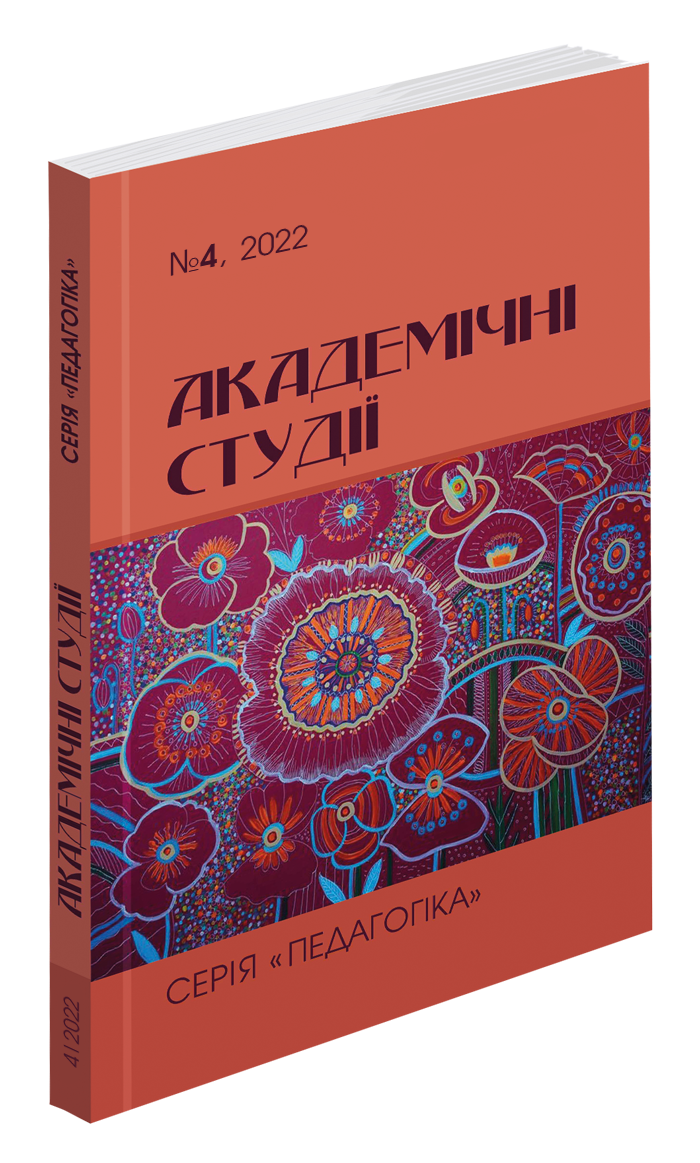Abstract
The author established that informatization of professional activity is a key direction of reforming the production industries. It was established that an important component of the professional competence of future bachelors in electronics is digital competence, which contributes to the successful performance of professional duties. It is noted that the concept of “digital competence” is quite broad and there is currently no single universal definition. The article presents interpretations of the concept of “digital competence” by such scientists as: H. Genseruk, S. Scott, L. Gavrilova, Yu. Topolnyk, G. Soldatova. Various approaches to delineating the components of digital competence are considered. They are information component and media competence, communicative, technical and consumer competence (H. Soldatova), technical skills of working with ICT, the ability to use these resources in professional activities and the ability to plan, analyze and manage the work process using information and communication technologies (S. Prokhorova), cognitive and valuemotivational (L. Semko), information and digital data, communication and cooperation, creation of digital content, security, problem solving (DigComp 2.0). It is indicated that the tasks of digital competence are information management, satisfaction of needs, joint activity, problem solving, creation of a digital product, cooperation and communication. It is noted that digital competence generates efficiency coefficients of the professional higher education system, including an emphasis on models reflecting the dynamics of changes in external and internal components of the digital environment. The article pays attention to the levels of digital competence formation as an indicator that reflects the readiness of future bachelors in electronics to actively use digital technologies in professional activities. Indicators for measuring the level of digital competence have been determined, among them are professional development, use of digital resources, selfeducation, and formation of digital competence of future bachelors in electronics. It is noted that digital competence correlates with three levels of experience: high (expert), medium (integrator) and low (novice).
References
Браславська О., Озерова Л. Формування цифрової компетентності майбутніх педагогів у закладах вищої освіти. Збірник наукових праць «Проблеми підготовки сучасного вчителя», 2022. №1 (25). С. 126–135.
Гаврілова Л. Г., Топольник Я. В. Цифрова культура, цифрова грамотність, цифрова компетентність як сучасні освітні феномени. Інформаційні технології і засоби навчання. 2017. Т. 61. № 5. С. 1–14.
Генсерук Г. Р. Цифрова компетентність як одна із професійно значущих компетентностей майбутніх учителів. Open educational e-environment of modern University. 2019. № 6. С. 8–14.
Головач Л. В. Розвиток цифрової компетентності педагога професійної і фахової передвищої освіти. Цифрова компетентність як складник розвитку професійної компетентності педагогічного працівника ЗП (ПТ) О: матеріали регіонального науково-практичного семінару (6 жовтня 2021 р.). Біла Церква: БІНПО ДЗВО «УМО» НАПН України, 2021. С. 25–32.
Запорожцева Ю. С. Інформаційно-цифрова компетентність як складник сучасного навчально-виховного процесу. Теорія і методика професійної освіти. 2019. №12. Т. 1. 2019. С. 79–82.
Ковальчук В. І., Заїка А. О. Формування цифрової компетентності майбутніх майстрів виробничого навчання сільськогосподарського профілю. Інформаційні технології і засоби навчання, 2021, Том 85, №5. С. 118–129.
Копняк К., Радзіховська Л. Складові цифрової компетентності майбутніх економістів. Slovakia, Scientific Letters of Academic Society of Michal Baludansky. Košice. 2021. Vol. 9. №1. Р. 80–82.
Прохорова С. М. Поняття цифрової компетентності вчителя іноземної мови у світовому освітньому просторі. Вісник Житомирського державного університету імені Івана Франка. Педагогічні науки. 2015. № 4. С. 113–116.
Семко Л. Особливості компетентнісно орієнтованого навчання інформатики. URL: https://lib.iitta.gov.ua/72 4506/1/%D0%A1%D0%B5%D0%BC%D0%BA%D0%BE_%D1%82%D0%B5%D0%B72021.pdf
Федорук О. М. Використання інформаційних технологій в освітній сфері ВНЗ: прикладні аспекти. Інноватика у вихованні. 2016, № 4. С. 350–356.

